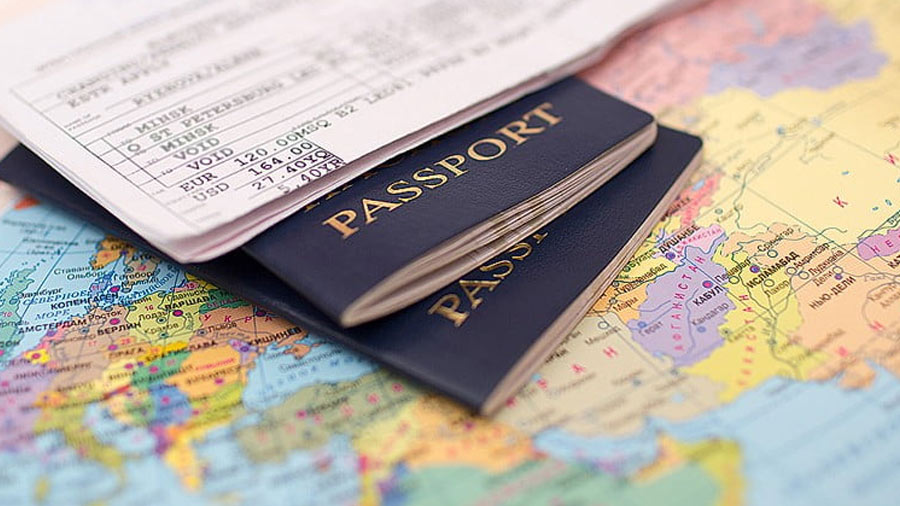
The Japan Vietnam visa exemption 2025 duration marks an exciting development in the travel and diplomatic relations between these two nations. This policy promises to simplify international travel, enhance cultural exchanges, and foster deeper economic ties. As both countries aim to promote mutual understanding and tourism, the details surrounding the exemption’s duration and scope are critical for travelers and policymakers alike. This article takes an in-depth look into what the visa exemption entails for 2025, how it could reshape bilateral relations, and what travelers should prepare for in the coming year.
The emerging policy of visa exemption between Japan and Vietnam – especially the nuances of its 2025 duration – offers significant opportunities for millions of tourists, business travelers, and cultural enthusiasts. Understanding the specifics of this exemption, including eligibility, length of permitted stay, and future prospects, is essential for stakeholders aiming to maximize its benefits. As the global travel landscape continues to evolve post-pandemic, Japan and Vietnam stand out as strategic partners investing in streamlined movement across borders, with the Japan Vietnam visa exemption 2025 duration serving as a key milestone in that journey.
Japan and Vietnam Visa Exemption: An Overview for 2025

The potential for a visa exemption agreement between Japan and Vietnam in 2025 signifies a strategic shift in their diplomatic engagement. Historically, travelers from both countries faced multiple bureaucratic hurdles, including visa applications and processing delays, which often hindered tourism and business exchanges. However, with their mutual interest in strengthening economic and cultural ties, discussions about visa waivers have gained momentum, culminating in plans for a formal exemption program anticipated to be operational in 2025. This initiative is envisioned to facilitate easier travel, promote tourism growth, and deepen bilateral relations.
This overview highlights that the Japan Vietnam visa exemption 2025 duration is not just a short-term policy but a component of a broader strategy aiming for more seamless mobility. Both governments recognize that mutual trust and shared economic interests demand less cumbersome travel procedures. The exemption is expected initially to cover short-term visits, such as tourism, business trips, and family visits, with detailed terms to be signed and clarified. Moreover, it signals a new era of cooperation, where both countries are leveraging their growing economic potential and cultural affinities to create a more integrated regional environment.
Potential Impact of Japan-Vietnam Visa Exemption on Tourism

The tourism industry stands to benefit immensely from the implementation of the Japan Vietnam visa exemption 2025 duration. Reduced visa barriers will likely lead to a surge in travelers, both from Japan heading to Vietnam and vice versa, as the cost and time of obtaining visas diminish or are eliminated altogether. This new ease of travel can open Vietnam to more Japanese tourists seeking affordable travel destinations, while Japanese travelers will find Vietnam more accessible as an exotic and culturally rich country to explore. Additionally, the exemption could trigger a boom in smaller, regional tourism circuits, spreading economic benefits beyond major cities.
From a personal perspective, increased tourism can act as a catalyst for cultural exchange, fostering greater understanding and appreciation of shared history and traditions. However, the impact extends beyond leisure travel; business tourism and professional exchanges are also poised for growth. With quicker access, entrepreneurs, investors, and trade representatives will have more opportunities to explore potential collaborations and market prospects. This interconnectedness, driven by the Japan Vietnam visa exemption 2025 duration, could create a sustainable tourism ecosystem that benefits local communities, service providers, and hospitality sectors in both countries.
Visa Exemption Duration: Details for Japanese and Vietnamese Citizens
While comprehensive official details are still emerging, the Japan Vietnam visa exemption 2025 duration is generally expected to permit short-term stays, likely ranging from 15 to 30 days, similar to other regional agreements. For Japanese citizens, the exemption might initially cover tourism, business visits, and official duties, with extensions or regularization processes for longer stays. Vietnam nationals could expect similar provisions, allowing them to explore Japan without the necessity of a visa for brief visits, thus greatly simplifying personal travel and professional engagement.
Understanding the specifics of the duration is crucial for effective planning. For travelers, the exemption’s duration determines the scope of their trip—from quick getaways to longer business ventures. Policymakers and visa officials need to balance granting extended access with security considerations and resource allocations. Ultimately, the Japan Vietnam visa exemption 2025 duration is designed to foster mobility while maintaining oversight, creating a practical framework that benefits both nations economically and diplomatically.
Eligibility Requirements for the Japan-Vietnam Visa Exemption Program
Eligibility criteria are a pivotal aspect of any visa exemption policy, and the 2025 agreement is anticipated to set clear, fair standards. Typically, eligibility will likely require travelers to hold valid passports, proof of return or onward travel tickets, and sufficient financial means for their stay. Specific categories such as diplomatic, official, or diplomatic-related visits might be excluded or governed by separate procedures. Both nations will probably also implement security measures like biometric checks, screening, and verification processes to ensure the exemption facilitates trusted travel.
It’s noteworthy that the program may also impose restrictions, such as a maximum number of visits per year or specific entry points. These regulations aim to prevent abuse while encouraging genuine cultural and business exchanges. For Vietnamese citizens, eligibility could be enhanced by bilateral agreements addressing reciprocity, security concerns, and tourism development goals. Overall, the Japan Vietnam visa exemption 2025 duration will be underpinned by these eligibility requirements, ensuring the system is efficient, secure, and mutually beneficial.
Comparison: Current Visa Regulations vs. Proposed Exemption for Japan/Vietnam
Presently, Japanese and Vietnamese travelers mostly navigate complex visa procedures to visit each other’s countries, involving documentation, fees, and approval times that can restrict spontaneous travel. The proposed exemption, especially the Japan Vietnam visa exemption 2025 duration, promises to substantially reduce or eliminate these barriers, turning the process into a streamlined, hassle-free experience. This shift could significantly change travel dynamics, making both countries more accessible for short-term visits, leisure, and business purposes.
Comparing current regulations with the proposed exemption reveals a paradigm shift from bureaucratic hurdles to trust-based mutual recognition. With the visa exemption expected to allow stays of up to a month or more, travelers will plan trips with greater flexibility and confidence. For policymakers, the transition will require adjustments in immigration controls and border management. This comparison underscores how the new policy reflects evolving international norms around mobility, emphasizing trust, security, and cooperation.
Economic Implications of the Japan-Vietnam Visa Exemption Policy
The economic ripple effects of the Japan Vietnam visa exemption 2025 duration are far-reaching. For tourism-related industries such as hotels, restaurants, tour operators, and cultural sites, increased visitor numbers translate into higher revenues and job creation. Moreover, the exemption can stimulate bilateral trade, investment, and corporate travels, fostering a more vibrant business climate. As both nations deepen their economic ties, the ease of travel becomes a strategic tool to boost industries, enhance technology exchange, and attract foreign direct investment.

From a macroeconomic standpoint, the policy can serve as a catalyst for regional economic integration within Southeast Asia and the broader Asia-Pacific. It encourages cross-border collaborations and reduces institutional barriers that previously hampered growth. The Japan Vietnam visa exemption 2025 duration thus becomes more than a simple travel facilitation—it is a catalyst for sustainable economic development, industrial diversification, and regional stability, all grounded in enhanced mutual confidence.
Travel Planning Considerations for the Japan-Vietnam Visa Exemption in 2025
Travelers planning for 2025 should pay attention to the specifics of the Japan Vietnam visa exemption 2025 duration—not just for convenience, but to ensure compliance with evolving regulations. Planning trips within the allowed duration, verifying eligibility, and preparing necessary documentation will be vital. Additionally, understanding the permissible activities during the exemption period—for instance, whether extended stay or work opportunities are included—is essential to avoid unintentional violations of the policy.
Moreover, travelers should keep an eye on official updates concerning the exemption’s implementation, entry points, and any associated requirements such as health protocols or digital registration systems. The easing of entry processes promises more spontaneous and flexible travel options; however, prudent planning and staying informed will enable travelers to maximize benefits while adhering to legal and security standards. The Japan Vietnam visa exemption 2025 duration is set to create a new travel landscape that encourages exploration while maintaining safety and order.
Looking Ahead: Future Developments in Japan-Vietnam Travel Relations
The Japan Vietnam visa exemption 2025 duration signals the beginning of more comprehensive travel facilitation initiatives. Both nations are likely to expand cooperation beyond short-term visas, exploring possibilities like long-term residence, work visas, and developmental partnerships. As mutual trust grows, further negotiations may include student exchanges, professional training programs, and cultural collaborations, creating a multifaceted relationship driven by people-to-people exchanges.
Future developments will likely hinge on the success of the initial exemption, with data-driven evaluations guiding policy refinements. The potential for technology-driven border management innovations, such as biometric verification and borderless travel solutions, could further streamline the process. Ultimately, the evolving landscape of Japan-Vietnam relations promises to benefit citizens, businesses, and governments alike, fostering a resilient partnership rooted in shared prosperity and cultural understanding.
Conclusion
The Japan Vietnam visa exemption 2025 duration represents a transformative step towards seamless cross-border mobility, promising significant benefits in tourism, trade, and cultural exchange. As both countries prepare to implement and refine this policy, it will undoubtedly invigorate mutual relations, boost economic growth, and facilitate more spontaneous travel opportunities. Understanding the detailed provisions, eligibility criteria, and future prospects is essential for travelers and policymakers eager to capitalize on this new era of cooperation. The pathway laid out by this exemption will likely serve as a blueprint for further regional integration and international collaboration, advancing Japan-Vietnam relations into a more dynamic and prosperous future.

Leave a Reply